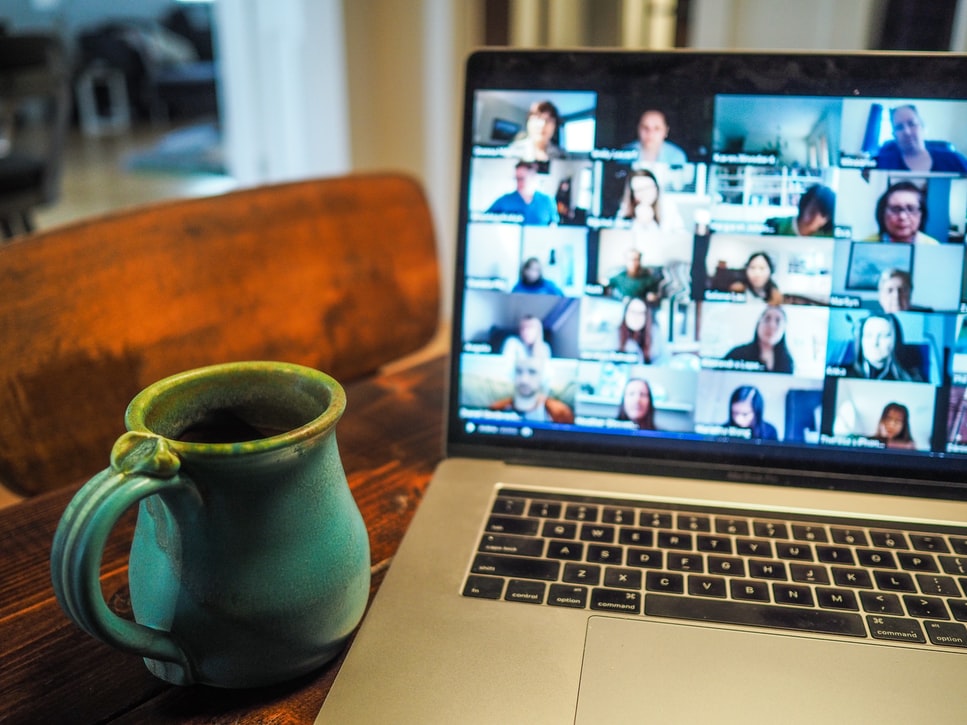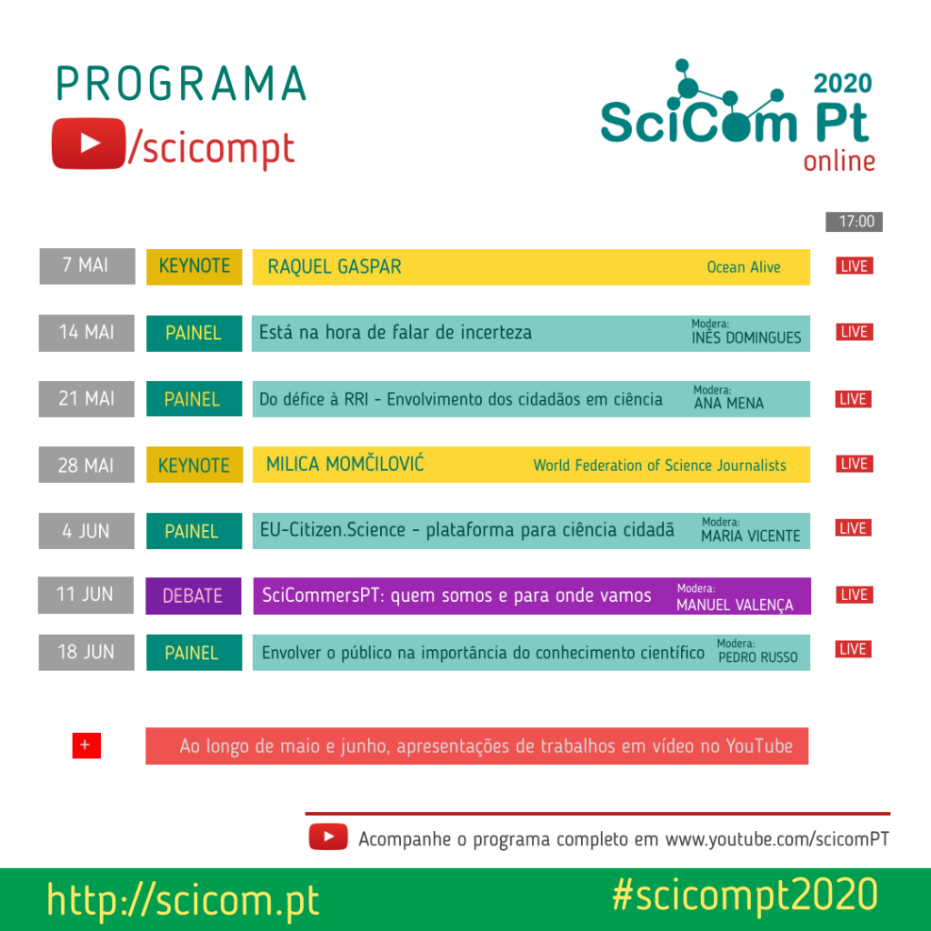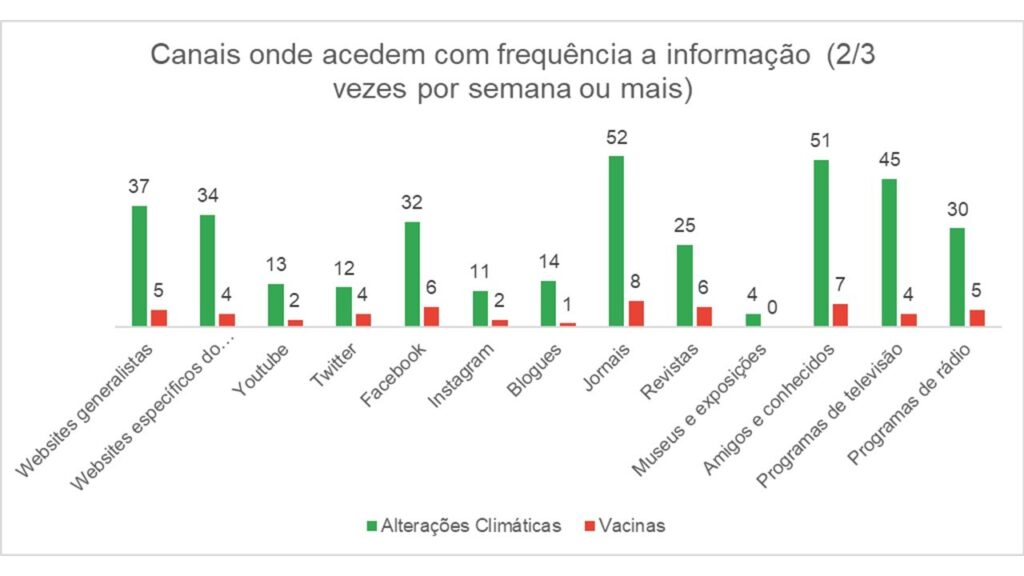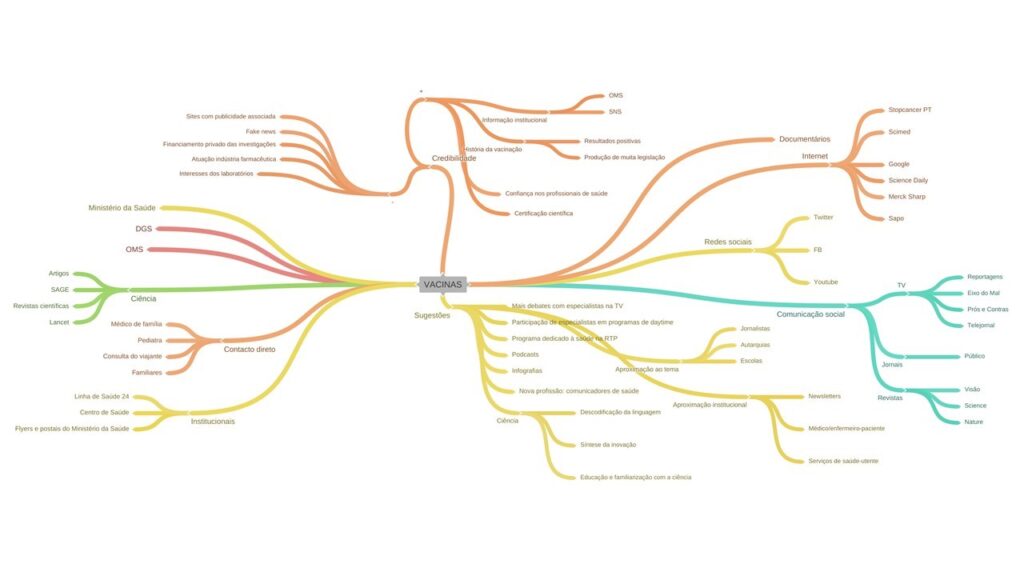Due to the pandemic, many conferences the CONCISE team expected to attend have been cancelled, delayed, or moved online. SciComPT, the annual conference of the Portuguese network of science communicators, opted for the latter.

This year’s conference was supposed to take place in the Azores, the Portuguese archipelago in the middle of the North Atlantic Ocean on May 7 and 8. It was the first time, since its first edition in 2011, that the conference would be held outside mainland Portugal. But the virus prevented the science communicators from visiting one of the most beautiful regions of the country, with a significant tradition in ocean and space research and communication.
The SciComPT 2020 online conference will be much more extended over time. It started May 7, with the first keynote speech, and will end only on June 18. Every week, on Thursday, there are live sessions on YouTube: panels, keynotes and debates. Throughout the week, short videos of the accepted presentations are also put online on the YouTube channel of the network. Currently, there are already 16 presentations available online, with hundreds of views each.
Source: http://scicom.pt/
Even though nothing replaces face-to-face interactions, informal conversations, and direct dialogue between presenter and audience at a conference, there are also clear advantages in online conferences. Participants and other audiences can watch the videos whenever it is convenient. Parallel sessions no longer limit the number of simultaneous presentations we can watch. Comments and questions can be asked and replied online. The videos are public, so no conference fees are required, and everybody can have access to what is being done in science communication in the country.
The CONCISE presentation was made available on May 12. It was a challenge to put all the main ideas of the project and some preliminary results in only three minutes. So, after a brief presentation of the project and its methodology, we focused on the Portuguese case, showing some infographics about the public consultation held in Lisbon on November 16, 2019. Additionally, we decided to show some quantitative data (based on short surveys applied during the consultation) comparing climate change and vaccines on the frequency participants accessed scientific information from different sources, their credibility, and the frequency they accessed contents related to the topics in both mainstream and digital media. Some of our brief conclusions were related to the fact that international sources were more used in climate change than in vaccines, in which national sources of information prevailed. In both topics institutional sources are considered very reliable when compared to companies, for example. And the access participants have to climate change information is much broader and intense in both mainstream and digital media than vaccines information.
However, these preliminary results need to be understood in the light of the qualitative data (based on content analysis of the transcriptions of the discussions) that national teams are examining now. Before starting coding all the 96 hours of transcriptions, we did an in-depth reading of the text creating some mind maps – some more simple, some more detailed – that helped us define the codebook among all the partners. Some of those simple versions of the mind maps were also used in the conference video as we believed they could give some first hints to our audience. They were structured according to the main questions the facilitators introduced during the discussions, namely how citizens are informed, how reliable the sources are, and what suggestions participants had to improve scientific communication.
The questions we received through YouTube comments were mainly focused on the final results, showing there is an audience eager for them, which reinforces our belief that CONCISE findings are relevant and important to the wide community of science communicators. The other two dimensions approached concerned the possibility of (i) accessing our mind maps online and (ii) giving further information about the comparison among countries. Unfortunately, since the qualitative analysis is not yet finished, we could not give further details on that.
As scientists trying to find better ways to communicate our scientific findings with the public, we need to be adaptable to different contexts and ready to adjust our scientific outputs. Notwithstanding, when the conference was transformed into a virtual event, we admit we were slightly sceptical at first because we thought it would be impossible to communicate anything properly in just three minutes besides having to deal with the technical limitations of making a video at home without professional support. But we accepted the challenge and did some rewriting to assure the main ideas were put in the video that in the end was easy to shoot and edit. Additionally, we used this participation as an opportunity to disseminate CONCISE social networks since they will be the key driver of our dissemination strategy in a time of COVID-19 and virtual conferences. This was the Portuguese team’s first virtual conference in this project, but more will come in the next months. We believe this experience was successfully completed as we learned how to adjust faster and to better communicate in this new virtual world we are all living in.
João Estevens, Ana Delicado, Edurne Gaston



